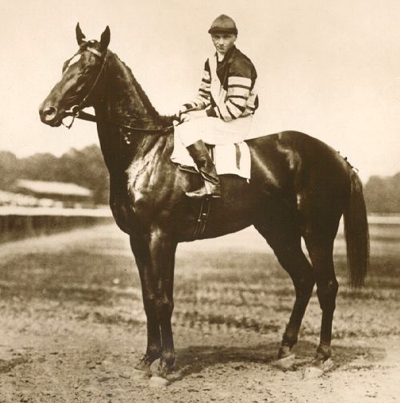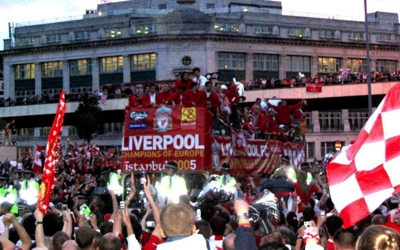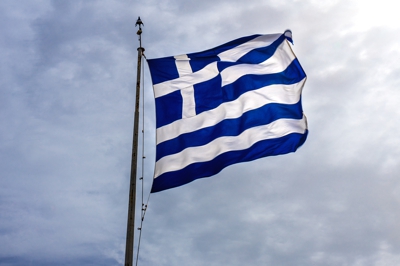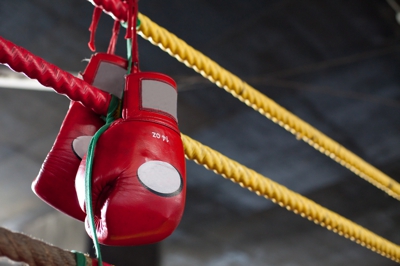 There are all sorts of reasons why we place bets. Sometimes we do it to make life a little bit more exciting when there’s a boring match up, such as Stoke versus West Brom. Sometimes we do it to make ourselves feel better in the event that the outcome we want doesn’t happen. If we’re honest, though, then more often or not we do it because we’d like to win some money. It’s why so few of us can resist wagers with long odds, in spite of the fact that we know they don’t have much of a chance of winning. When I bet on the Grand National, for example, I always opt for one horse with short odds, one with medium odds and one rank outsider. I know the third one is pretty much a waste of money, but imagine if it came in!
There are all sorts of reasons why we place bets. Sometimes we do it to make life a little bit more exciting when there’s a boring match up, such as Stoke versus West Brom. Sometimes we do it to make ourselves feel better in the event that the outcome we want doesn’t happen. If we’re honest, though, then more often or not we do it because we’d like to win some money. It’s why so few of us can resist wagers with long odds, in spite of the fact that we know they don’t have much of a chance of winning. When I bet on the Grand National, for example, I always opt for one horse with short odds, one with medium odds and one rank outsider. I know the third one is pretty much a waste of money, but imagine if it came in!
Whether you’re talking about buying lottery tickets, scratch cards or putting on accumulators with fifteen legs, there’s a reason we all get tempted by bets that we know have little chance of winning. The problem is that sometimes they do win. Someone does win the lottery or get lucky on a scratch card. People have been in the newspapers after seeing all legs of their accumulator come home despite the unlikelihood of that happening. It keeps us interested and means that we’ll always come back to bets with such long odds because one day it might be us that will be walking away with the winnings. That’s why I decided to have a look at some of the biggest underdogs that have ever won against all of the odds, which if we’d had a bet on we’d be over the moon about. Just remember, it’s as likely to happen as Leicester winning the Premier League.
Leicester City: 5000/1

By Peter Woodentop (LCFC lift the Premier League Trophy) [CC BY-SA 2.0], via Wikimedia Commons
The Prime Minister becoming Aston Villa manager, Elvis Presley being found alive and well and the Queen recording a Christmas number one were all things that the bookmakers believed were more likely to happen than the Foxes winning the top-tier title back in the 2015-2016 season. A section of supporters managed to back the bet at 5000/1, making it a bet with some of the longest odds ever to become a winner. How can I possibly follow that?
Boris Becker Wins Wimbledon: 11/1

By thomasowen (Boris Becker) via Bigstockphoto.com
This is an example of when the bookmakers’s odds don’t necessarily reflect just how much of an underdog the winner of a given event actually was. Since full-seeding began at Wimbledon in 1927, no one had had won the tournament as an unseeded player. In 1985, there were only sixteen seeds and so seventeen-year-old Boris Becker, who was ranked twentieth in the world at the time, entered the tournament unfancied. That was in spite of the fact that he’d won the tournament at Queen’s Tennis Club just a couple of weeks before.
His win at Queen’s aside, it’s not overly surprising that few people expected Becker to win. The German was so young that the winner of the Boys’s Singles event, Leonardo Lavalle, was actually a couple of months older than him. He also had a tricky run through to the final, having to take on sixteenth seed Tim Mayotte in the fourth round, fifth seed Anders Järryd in the semi-finals and then went up against the vastly more experienced Kevin Curren, who was seeded eighth, in the final. Names, such as John McEnroe, Ivan Lendl, Jimmy Connors and Pat Cash, were supposed to win the tournament, not a youngster from West Germany. Not quite on the Leicester City level of surprise, but absolutely worthy of a mention.
Sanford Memorial Upset: 100/1

By Handicapper (Man O’ War) [CC BY-SA 2.0], via Wikipedia.org
Quite what happened next remains under some dispute, with some claiming that Man o’ War had its back to the field as the webbing went up and the race got underway. Whatever the truth of the matter, he endured a torrid start and never quite recovered. Partly that was because of the mixup at the start, partly it was because of poor riding from the jockey who put him in a position to be boxed in by other competitors. Regardless, the significant favourite lost out by a neck to a horse that he’d given up fifteen pounds to, with the race leading to the Saratoga course earning the nickname the ‘Graveyard of Champions’. The winning horse, of course, had the incredibly appropriate name of Upset.
The Miracle on Ice: 1000/1
 The United States hockey team might have had home advantage for the 1980 Winter Olympics, given that is was being held in Lake Placid, New York, but other than that, they had very little going for them. They were due to face the Soviet Union in a medal-round match, with the Soviets having picked up the gold medal in six out of the previous seven Winter Olympics. Their side was made up of professionals compared to the amateurs that were in the American side, meaning that bookmakers didn’t think home advantage would count for much and made the Russians significant favourites for the win.
The United States hockey team might have had home advantage for the 1980 Winter Olympics, given that is was being held in Lake Placid, New York, but other than that, they had very little going for them. They were due to face the Soviet Union in a medal-round match, with the Soviets having picked up the gold medal in six out of the previous seven Winter Olympics. Their side was made up of professionals compared to the amateurs that were in the American side, meaning that bookmakers didn’t think home advantage would count for much and made the Russians significant favourites for the win.
The Americans out-performed expectations to begin with, drawing 2-2 with their counterparts at the end of the first period. Their Cold War rivals pulled away as expected in the second period, taking a 3-2 lead into the final round of the match. The Americans shocked the world, however, when they put two more past the Soviets to win the match 4-3 and earn themselves a chance to win the Gold Medal in their game against Finland. They did just that, but it would always be their win over the Soviet Union that would be referred to as the Miracle on Ice.
The Miracle Mets: 100/1

By Peter Manzari (The New York Mets at Shea Stadium) [CC BY-SA 2.0], via Wikipedia.org
Things weren’t expected to be significantly different for the Mets in the 1969 season, either. The Chicago Cubs were a solid team who won eleven of their opening twelve games, whilst the Mets began well enough but struggled in the middle of the campaign. They overcame that, however, to rally towards the end of the season at the same time that the Cubs lost seventeen of their final twenty-five matches. The Mets ended the campaign eight games better off than the Cubs thanks to their 100–62 record before beating the National League West champions Atlanta Braves. They then had to go up against the American League winners, the Baltimore Orioles, over five games. They won and were crowned World Series winners for the first time in their history.
The Miracle of Istanbul: 100/1

By Jprw (Liverpool celebrating their 2005 victory) [CC BY-SA 2.0], via Wikipedia.org
At half-time, bookmakers were offering odds of 100/1 for Liverpool to go on and lift the European Cup, whilst AC Milan were 1/100 to do the same. For most Reds fans the hope was merely to avoid embarrassment, so when Steven Gerrard scored after nine minutes of the second-half it was felt that some honour had been restored. Two more goals in the space of the following six minutes meant that Liverpool had done the seemingly impossible and dragged themselves back into the game. Andriy Schevchenko, who was considered to be one of the best strikers in the sport at the time, missed a chance virtually on the line with just two minutes of extra-time remaining, before also missing the decisive penalty that gave Liverpool the win. As it was their fifth European Cup victory, the Reds got to keep the trophy and a new one was made for the following season’s competition.
Greece Win the European Championship: 150/1
 Perhaps it was José Mourinho leading Porto to a win in the Champions League in 2004 that inspired Greece to play such ultra-defensive football during the European Championships in 2004. Whatever the reason, they were a rank outsider when the tournament got underway in Portugal on the twelfth of June. It was a tournament that would be filled with surprises, from Germany, Italy and Spain getting knocked-out in the group stages through to the defending champions France only making it as far as the quarter-finals. Unquestionably, though, the shock of the year was unfancied Greece making it all the way to the final of the competition.
Perhaps it was José Mourinho leading Porto to a win in the Champions League in 2004 that inspired Greece to play such ultra-defensive football during the European Championships in 2004. Whatever the reason, they were a rank outsider when the tournament got underway in Portugal on the twelfth of June. It was a tournament that would be filled with surprises, from Germany, Italy and Spain getting knocked-out in the group stages through to the defending champions France only making it as far as the quarter-finals. Unquestionably, though, the shock of the year was unfancied Greece making it all the way to the final of the competition.
Prior to 2004, the Greeks had only qualified for one European Championships, which occurred in 1980 when they failed to make it out of their group. They’d only qualified for one World Cup in their history, too, back in 1994. Little surprise, then, that the bookies thought they were just there to make up the numbers. They did so much more than that in the end, however. Qualifying from a group containing Portugal, Spain and Russia was no easy task, but they than had to beat France in the quarterfinals and a much-fancied Czech Republic side in the semis. Even then their ‘reward’ was a match against the hosts at an extraordinarily partisan Estádio da Luz. They won 1-0, however, lifting the trophy in spite of the fact that they scored just seven goals across the competition.
Rulon Gardner Wins Gold: 2000/1

By U.S. Army (Rulon Gardner) [CC BY-SA 2.0], via Wikipedia.org
The extent to which the Greco-Roman wrestling was supposed to be a coronation rather than a competition for Gardner cannot be over-stated. The Russian had not lost a math for thirteen years. Perhaps even more impressively, he hadn’t even so much as dropped a point over the course of the preceding six years. Known as the ‘Russian Bear’, he would end his career with 887 wins and just two losses. One of them came in 2000, though, when a man four years his junior with significantly less experience and who had never ranked higher than fifth in the world beat him. The Russian retired after the finals and went into politics, whilst Gardner returned four years later and picked up a Bronze Medal.
Douglas Beats Tyson: 42/1
 I started this piece talking about an event when the bookmakers’s odds didn’t really reflect just how big a shock the result was, so it’s only right that I finish it in the same way. Buster Douglas’s win over Mike Tyson is widely considered to be one of the biggest upsets in the history of boxing, so it’s entirely fair to say that the 42/1 odds offered by Las Vegas bookies on the Ohio-born Douglas before the fight undersell quite how much of an underdog the fighter was. The match took place at the Tokyo Dome in Japan on the eleventh of February, 1990. Given that he held the WBC, WBA, and IBF titles at the time, Tyson was the undisputed heavyweight champion of the world heading into the fight.
I started this piece talking about an event when the bookmakers’s odds didn’t really reflect just how big a shock the result was, so it’s only right that I finish it in the same way. Buster Douglas’s win over Mike Tyson is widely considered to be one of the biggest upsets in the history of boxing, so it’s entirely fair to say that the 42/1 odds offered by Las Vegas bookies on the Ohio-born Douglas before the fight undersell quite how much of an underdog the fighter was. The match took place at the Tokyo Dome in Japan on the eleventh of February, 1990. Given that he held the WBC, WBA, and IBF titles at the time, Tyson was the undisputed heavyweight champion of the world heading into the fight.
Douglas, on the other hand, was ranked seventh in the world and had suffered a TKO in his only previous title fight against Tony Tucker three years earlier. He did earn the right to fight Tyson thanks to six wins in a row, but even that was offset by the fact that his mother, Lula Pearl, had died twenty-three days before the bout was due to take place. Perhaps that was what made him fearless heading into the fight, knowing that anything other than a full-throated attack of a man with thirty-seven wins and no losses prior to the bell-ringing would result in his name being added to Tyson’s list of wins. It looked like Tyson had done enough when he knocked Douglas down for a nine count at the end of Round 8, but the challenger fought back bravely and knocked out the Champ in the tenth.
